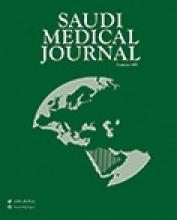18 June 2018 ¦ Geneva - The World Health Organization (WHO) is today releasing its new International Classification of Diseases (ICD-11).
The ICD is the foundation for identifying health trends and statistics worldwide, and contains around 55 000 unique codes for injuries, diseases and causes of death. It provides a common language that allows health professionals to share health information across the globe.
“The ICD is a product that WHO is truly proud of,” says Dr Tedros Adhanom Ghebreyesus, WHO Director-General. “It enables us to understand so much about what makes people get sick and die, and to take action to prevent suffering and save lives.”
ICD-11, which has been over a decade in the making, provides significant improvements on previous versions. For the first time, it is completely electronic and has a much more user-friendly format. And there has been unprecedented involvement of health care workers who have joined collaborative meetings and submitted proposals. The ICD team in WHO headquarters has received over 10 000 proposals for revisions.
ICD-11 will be presented at the World Health Assembly in May 2019 for adoption by Member States, and will come into effect on 1 January 2022. This release is an advance preview that will allow countries to plan how to use the new version, prepare translations, and train health professionals all over the country.
The ICD is also used by health insurers whose reimbursements depend on ICD coding; national health programme managers; data collection specialists; and others who track progress in global health and determine the allocation of health resources.
The new ICD-11 also reflects progress in medicine and advances in scientific understanding. For example, the codes relating to antimicrobial resistance are more closely in line with the Global
Antimicrobial Resistance Surveillance System (GLASS). ICD-11 is also able to better capture data regarding safety in healthcare, which means that unnecessary events that may harm health – such as unsafe workflows in hospitals - can be identified and reduced.
The new ICD also includes new chapters, one on traditional medicine: although millions of people use traditional medicine worldwide, it has never been classified in this system. Another new chapter on sexual health brings together conditions that were previously categorized in other ways (e.g. gender incongruence was listed under mental health conditions) or described differently. Gaming disorder has been added to the section on addictive disorders.
“A key principle in this revision was to simplify the coding structure and electronic tooling – this will allow health care professionals to more easily and completely record conditions,” says Dr Robert Jakob, Team Leader, Classifications Terminologies and Standards, WHO.
Dr Lubna Alansari, WHO’s Assistant Director-General for Health Metrics and Measurement, says: “ICD is a cornerstone of health information and ICD-11 will deliver an up-to-date view of the patterns of disease.”
Available from: http://www.who.int/news-room/detail/18-06-2018-who-releases-new-international-classification-of-diseases-(icd-11)
- Copyright: © Saudi Medical Journal
This is an open-access article distributed under the terms of the Creative Commons Attribution-Noncommercial-Share Alike 3.0 Unported, which permits unrestricted use, distribution, and reproduction in any medium, provided the original work is properly cited.






